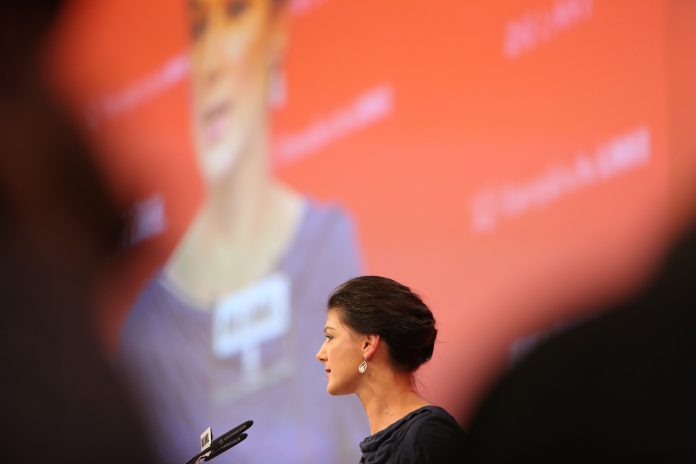With the launch of Aufstehen (Stand Up), a cross-party leftist movement, Sahra Wagenknecht, co-leader of the opposition Left party’s group inside Germany’s federal Bundestag parliamentary chamber, appears to be defying sceptics in Berlin.
Announcing the launch on September 4, she said the “alliance” had 101,000 adherents who had signed up to the project — billed by some media as resembling grassroots movements in Britain, France and the USA that are intent on regulating “neo-liberal” capitalism.
As reported by Deutsche Welle (DW), Germany’s international broadcaster, prominent Aufstehen backers include veteran Greens politician Ludger Volmer, dramatist and author Bernd Stegemann, Social Democrat (SPD) parliamentarian Marco Bülow and Wagenknecht’s husband, former SPD leader turned former Left party leader Oskar Lafontaine.
Also at the launch on September 4 was Simone Lange, mayor of Germany’s northern port city of Flensburg and a recent federal SPD leadership challenger.
However, Lars Klingbeil, the general secretary of the SPD currently in Chancellor Angela Merkel‘s coalition cabinet, dismissed Aufstehen as a “power struggle” within the opposition Left party – amid conjecture over a further leftist schism.
In a similar vein, Social Democrat vice-chairman Ralf Stegner warned members of his SPD against joining figures he termed “notorious separatists,” like Wagenknecht and Lafontaine.
“That is no project of the party Die Linke,” insisted Left party executive official Jörg Schindler, adding that its originators were Wagenknecht and Lafontaine.
According to DW, nearly two-thirds of Germans (62%) do not believe Aufstehen will succeed in winning over disenchanted voters, according to a survey conducted by the pollster Civey for the key German online news provider t-online. Only 19.8% of 5,000 respondents surveyed believed the movement had a chance long-term.
The launch of Aufstehen follows last September’s first-time entry into the federal parliament of the far-right Alternative for Germany (AfD) party, making it currently the largest opposition grouping with 92 seats.
Germany’s three left-of-centre parties – the SPD currently in government with German Chancellor Angela Merkel, the opposition Greens and the opposition Left – amassed under 40% in the last federal election of September 2017.
On September 3, Greens party co-leader Annalena Baerbock said Aufstehen “was not my alliance” because its adherents had not taken to Chemnitz’ streets to protest against far-right demonstrations last week.

